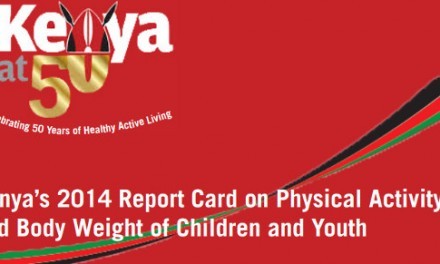Ottawa, March 4, 2013— As co-chair of Ontario’s Healthy Kids Panel – which today released its report on the growing problem of childhood obesity – CHEO’s chief executive, Alex Munter, says it is time for “all hands on deck”.
No Time to Wait: The Healthy Kids Strategy reports that, if nothing is done, the current generation of children will develop chronic illnesses much younger and their health will be more affected as they age. It also predicts that the health-related costs of obesity will grow and affect the sustainability of the health care system.
“CHEO will be quickly evaluating how we can contribute to the strategy set out in the report – starting on the right path from conception and birth, changing the food environment and creating healthier communities,” said Munter, CHEO’s president and chief executive officer, who co-chaired the Healthy Kids Panel with Kelly Murumets, president and CEO of ParticipACTION. “Hospitals, health care providers, local governments, institutions, the private sector and families can all do their part.”
“CHEO sees, every year, hundreds of children with serious weight problems that will affect their life-long health,” said Munter. “Unfortunately, there is no magic wand solution. Like with smoking and other complex public health issues, only a stacking of initiatives can make a difference and fundamentally change the trajectory. We need an ‘all hands on deck’ approach.”
The panel was tasked in early 2011 to develop a strategy that would meet the Ontario government’s target of reducing childhood obesity by 20% in the next 5 years. Current research suggests that in 2009, obesity cost Ontario $4.5 billion. Being obese can lead to cardiovascular disease, diabetes and certain cancers, including breast, prostate, colorectal and pancreatic tumours.
CHEO’s Center for Healthy Active Living (CHAL) was set up in 2011 to treat complex severe obesity in children. The Centre has about 150 children and youth in treatment and another 150 on a waiting list. These patients have significant weight-related health complications such as type 2 diabetes, high blood pressure, high cholesterol and obstructive sleep apnea. About 30% of the Centre’s patients are in an intensive treatment group.
“CHEO will be quickly evaluating how we can contribute to the strategy set out in the report – starting on the right path from conception and birth, changing the food environment and creating healthier communities,” said Munter. “Hospitals, health care providers, local governments, institutions, the private sector and families can all do their part.”
Healthy Active Living and Obesity (HALO) Research Group works to advance the understanding and promotion of health and wellness where children live, play and learn; and to develop, evaluate and mobilize strategies to prevent, manage and treat obesity and lifestyle-related diseases. Since its establishment, HALO has produced 275 peer-reviewed publications.
For more information on prevention and treatment of childhood overweight and obesity, and links to other resources, visit the CHEO website.




